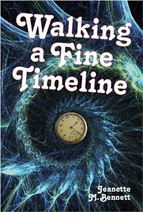 |
| Church of the Exaltation of the Cross |
By the time the first stone church was built in 1794, the neighborhood had changed. The population was mostly Cossacks serving in the Imperial Regiments. It is still mostly Cossacks here, which is why this church is more often called the Cossack’s Church. The current building dates back to 1851 and is really a cathedral, with a complex of churches and chapels.
If you ask someone outside this part of the world what a “Cossack” is, and they will tell you it is a “Russian soldier.” That is a bit like saying “Scottish Highlanders” are just “British soldiers.” The Cossacks are in fact an ethnic group from the southern Russian Empire. Their origins are shrouded in mystery and have been the subject of much debate and arm wrestling among historians for centuries.
I have mentioned back in the 13th century, the Golden Horde (the Northwestern portion of the Mongol Empire) had Russia under it’s thumb. The Horde had settled primarily in what is now the Ukraine and southern Russia. The native Cuman were driven west into Hungary and Bulgaria. The Cuman were tough, but the Horde was also tough and outnumbered them.
By the beginning of the 15th century, the Horde began to fall apart, losing political power. Into this vacuum came serfs from Russia and Eastern Europe, running away from their masters. They settled in the Caucasus Mountains, the Islands of the lower Dnieper and Don River basins left uninhabited by the retreating Horde. It is believed they probably met the remaining Cuman tribes who had been too isolated and too ornery for the Mongols to want to tangle with. The Cuman lived on their cattle herds and were famous as horsemen and warriors. They welcomed the refugees who wished to join them, no doubt seeing them as added man-power. However they had to prove they were tough enough. The Slavic serfs in turn taught the Cumans farming and these new amalgamated tribes evolved into the Cossacks.
 |
| Cossack warrior |
So the Cossacks are descended from the Cuman tough enough to outlast the Mongols and serfs brave enough to risk their lives to flee to a desolate land just so they could be free. They may not be powerful enough to keep a neighboring empire from putting their lands on their own maps, but they are hardheaded enough to push back any ruler stupid enough to try to push them around.
They especially don’t like people trying to convert them. The Polish Kings tried to make them Catholic and the Ottoman Sultans have tried to make them Muslim--and lived to regret it. Because the Cossacks are Orthodox Christians, they were more favorable to an alliance with the Russians. The Tsars have, for the most part, been wise enough to know Cossacks make better allies than enemies. They have allowed them semi-autonomy and actively recruited them into their military. Rather than fighting the Cossacks, they let the Cossacks fight for them. The Cossacks helped Russia conquer Siberia, Poland and other surrounding countries, creating the Russian Empire.
 |
| Cossack Calvary |
One elderly gentleman walked up to me, and spoke in broken French. “You French-man?” He pointed at my top hat.
“No, sir. I am English.” I replied in French. This is the language of the Imperial Court.
“Englishman come to watch us eat babies?” he grinned at me like a snarling tiger. He was shorter than me, but I think he could have easily taken me on. In fact I think his wife could, too.
“No.” I shook my head. “You are Christian, are you not?”
“Orthodox. Don’t forget that. Why you here?”
“I came to Russia to study the people, so I can tell the folks back home the real truth--that you are just people. I think I should show them all the people in the Russian Empire, including your people, the Cossacks.” I pointed to a soldier holding a toddler. “It appears to me you are too busy loving your babies to eat them.” I gave a slight bow. “If I am too disruptive, I shall leave you in peace. But if you don’t mind, I would like to sit in the back and watch the service, if that is all right?”
The old man rubbed his chin, studying me a moment. “No, you not sit in back. You sit in front.” He grabbed my arm and led me off. He introduced himself as Mykola Perevernykruchenko. After the service he took me to his home with a large extended family, and insisted I stay for dinner. We had boiled potatoes, sausages, millet grits and bread--very simple but hearty faire.
Perevernykruchenko told me about his life. He had learned to ride a horse at three and by five was playing war on horseback with reed arrows and wooden sabers, like all the other little boys. His father taught him how to fight with real bows and arrows. He told me how he had served the Tsar for twenty years, as had his father. Now his sons and grandsons were following the family tradition.
I hope none of his sons and grandsons will run foul of the Soviets. Some joined the Red Army, but most joined the White in defense of their Tsar. Between 1919 to 1920 it is estimated a half-a-million Cossacks were either executed or hauled away to Siberia to work camps. They did not get along with the Communists who wanted to convert them to atheism. But they will survive. And someday their homeland the Ukraine will be an independent country.
After dinner they played music and danced. The Cossacks are the one who invented the Hopak dance Russia is famous for. They squat and kick their feet out without losing their balance. They offered to teach me how, but once I squatted and kicked, I fell back on my posterior. They all had a good laugh over that. The older men tried to teach me a less strenuous dance, but even that was too much for me. It reminded me of an Irish jig.
 |
| Cossack Dancers |
As I took my leave, Perevernykruchenko admonished me, “You tell England we don’t eat babies. We good Christians.”
“Yes, I will.” I promised. What I had really come for was to record the Cossacks of this period so their descendants in the 27th century could see them. I had scanned everyone’s DNA, so Perevernykruchenko’s great, great, etc. grandchildren could “meet“ him. On a whim I turned back to him, “Excuse me, but if you could speak to your children’s children’s children’s children, what would you say to them?”
Perevernykruchenko frowned a moment, then smiled. “May you always be brave and free as your ancestors. You are a Cossack. Never forget that.”
Cossacks survived the Soviet era and retained their customs.
The more “sedate” traditional Cossack dance they tried to teach me (note these are old men)
In the 22nd century, the Ukraine finally got the Olympic Committee to accept Cossack dancing as an Olympic sport.
 |
| Reply of the Zaporozhian Cossacks to Sultan Mehmed IV of the Ottoman Empire by Ilya Repin (1880-91) |
Sultan Mahmud IV to the Zaporozhian Cossacks:
As the Sultan; son of Muhammad; brother of the sun and moon; grandson and viceroy of God; ruler of the kingdoms of Macedonia, Babylon, Jerusalem, Upper and Lower Egypt; emperor of emperors; sovereign of sovereigns; extraordinary knight, never defeated; steadfast guardian of the tomb of Jesus Christ; trustee chosen by God himself; the hope and comfort of Muslims; confounder and great defender of Christians -- I command you, the Zaporogian Cossacks, to submit to me voluntarily and without any resistance, and to desist from troubling me with your attacks.
--Turkish Sultan Mahmud IV
The reply was a stream of insulting and vulgar rhymes, parodying the Sultan's titles:
The Kozaks of the Dnieper to the Sultan of Turkey:
Thou Turkish Satan, brother and companion to the accursed Devil, and companion to Lucifer himself, Greetings!
What the blazes kind of noble knight art thou? The Devil voids, and thy army devours. Never wilt thou be fit to have the sons of Christ under thee: thy army we fear not, and by land and on sea we will do battle against thee.
Thou scullion of Babylon, thou wheelwright of Macedonia, thou beer-brewer of Jerusalem, thou goat-flayer of Alexandria, thou swineherd of Egypt, both the Greater and the Lesser, thou sow of Armenia, thou goat of Tartary, thou hangman of Kamenetz, thou evildoer of Podoliansk, thou grandson of the Devil himself, thou great silly oaf of all the world and of the netherworld and, before our God, a blockhead, a swine's snout, a mare's behind, a butcher's cur, an unbaptized brow, May the Devil take thee! That is what the Kozaks have to say to thee, thou basest-born of runts! Unfit art thou to lord it over true Christians!
The date we write not for no calendar have we got; the moon is in the sky, the year is in a book, and the day is the same with us here as with thee over there, and thou canst kiss us thou knowest where!
-- Koshovyi Otaman Ivan Sirko, with the whole Zaporozhian Host.
And this is the Victorian translation! A more literal translation would make me blush for a month. By the way, they never did surrender.











